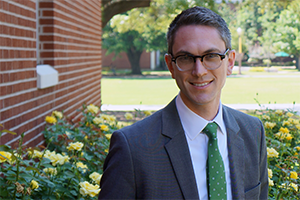This blog post is an adaptation of the article, “What Are They Saying (and Not Saying) about Vocation,” published in Word & World, Issue 43–3, Summer 2023. A full version of the article can be found here.
The Reformation doctrine of vocation is currently having a revival. Faith leaders should ground their understanding in scripture and tradition while also familiarizing themselves with the current conversation so they may discuss vocation constructively with those in their care. Below is a distillation of themes culled from dozens of recent books on vocation followed by suggestive critiques.
Writers disagree on who may have vocations. Some claim that vocation is basic to humanity, while others contend that only Christians have vocations. A variation is that non-Christians have God-given “stations” that become vocations by virtue of recognizing God’s voice to love others. Others acknowledge the difference faith makes without reserving “vocation” as a term for this distinction.
For many, vocation is the vehicle for conforming society to God’s will. A true vocation must “make a difference.” Occupations with presumed large-scale positive impact take precedence over jobs that simply provide for one’s family. A counterbalance to this narrative focuses on the object of service (neighbor) rather than results. Extremely rare is the Lutheran view that vocation maintains rather than improves the world.
If writers on vocation have left behind Luther’s two kingdoms, some appreciate his insight that all honest work has dignity. Mundane callings have theological importance because they serve others. When this view is consistently applied (which is rare), impact is an article of faith rather than a goal. For others, vocations are primarily the venue for Christian witness. This echoes some of the dignity-of-all-work perspective, but the orientation differs: vocation’s salience is its evangelistic potential.
Much literature assumes readers can freely pursue occupations they feel best suited for (or divinely drawn to). With this assumption, one’s “dream” is synonymous with that to which one is “called.” The fundamental task is to “discern” vocation, which is a personal exercise, since it requires “authenticity” and leads to bucking convention. Yet input from a (self-selected) community is essential.
For most, discernment data comes from determining how one is uniquely “wired” by God—the gifts, abilities, and passions implanted at birth. Given the time and maturity necessary for this task, the focus is on adult experiences, and some explicitly deny that children have vocations. Writers do not promise certainty but assurance that the Spirit’s guidance keeps seekers on course. According to the literature, faithfully living in the nexus of one’s gifts and passions is life’s greatest goal. Responsibilities that don’t align are constraints that must be reframed or waited out. Closely connected is the claim that vocation entails personal fulfillment. Many suggest that if your work does not make you excited, happy, content, and peaceful, it is not your true vocation. For others, joy is not the prerequisite but the task: through inner searching and self-improvement, occupation can become vocation.

The presumption of choice is nuanced by the obligation to follow God’s call. The obligation is relative to the clarity of the calling. Vocations are clearer when God speaks directly to individuals, and the notion that God communicates supernaturally and mystically is common. But not all distinguish precisely between God’s direct and indirect speech. God may speak through friends, but writers caution against confusing human authority with the Spirit’s urging.
Some oppose the inward-focused discernment trope, arguing that only by service to others do we “find ourselves.” Sometimes the same authors who stress future-oriented discernment balance this with attention to the “here and now.” Others are more direct, decrying the unscripturalness and elitism of occupational choice.
The fulfillment narrative also comes under some scrutiny. Some seek to dethrone happiness and satisfaction in vocational decision-making. Others distinguish between a laudable search for meaning and baser self-centered pursuits. Likewise, some condemn the pursuit of happiness while arguing that living with purpose leads to happiness. A rarer approach argues that vocation imbues the mundane with significance.
Some challenge the expectation of a supernatural or inner call. They argue that waiting for God to speak suspends the good one may be doing now; or, the pressure to fit a predetermined narrative forces unwarranted claims of divine communication. Sometimes, this swings back to discernment through inventories of self. Others soften the supernatural drama, speaking of divine hints and direction. For very few, confidence in providence displaces all concern for “hearing” God’s voice.
Vocation is also an arena of personal behavior. For some, vocation is where spiritual and moral growth happen. A few Lutheran voices emphasize instead the daily struggle with sin (and reliance on grace) played out in vocations. Conversely, some argue that virtues must be fostered if vocations are to accomplish what God intends.
With these themes identified, several possible critiques emerge:
- The claim that passions and talents are embedded at birth ignores recent research on passion development and growth mindset.
- The treatment of vocations under the rubric of occupations downplays family relationships.
- The typical discernment narrative, with its focus on fulfillment, would, if universally followed, leave hardly anyone to clean bathrooms, transport food, or answer customer service queries.
As a model of engagement, note the inadequacy of this literature’s consideration of suffering. Those that address it do so glibly, doubling down on compensatory joy or the self-discovery motif. Even more sober assessments only hint at suffering as a remote possibility, although some note that God forms, disciplines, and draws us to him through the burdens of callings.The literature offers little for those whose suffering is chronic, consuming, or unaccompanied by a sense of joy, purpose, sanctification, or self-actualization. It ignores that in the dominion of sin, suffering is integral to vocation. Relationships are pain (Genesis 3:16), and labor is toil (Genesis 3:17-19). Moreover, believers sacrifice their bodies in service to others (Romans 12). This is not to equate all suffering or make suffering a virtue. Rather, it is to recognize a wide swath of human experience under the category of suffering, so that we encounter even the most grievous trials as a familiar foe who is finally not victorious over God’s elect (Romans 8:31-38).




Thanks I found this helpful